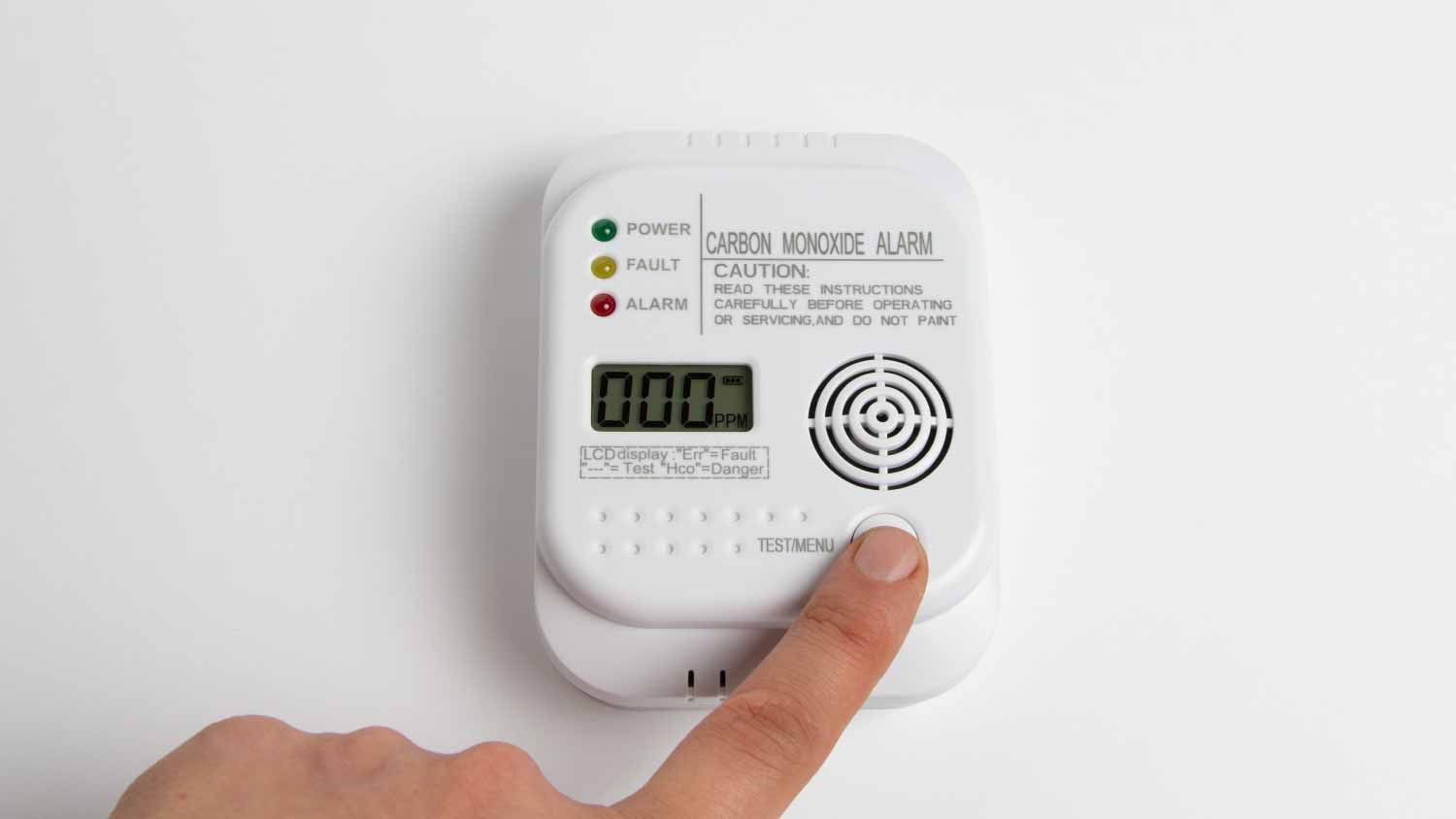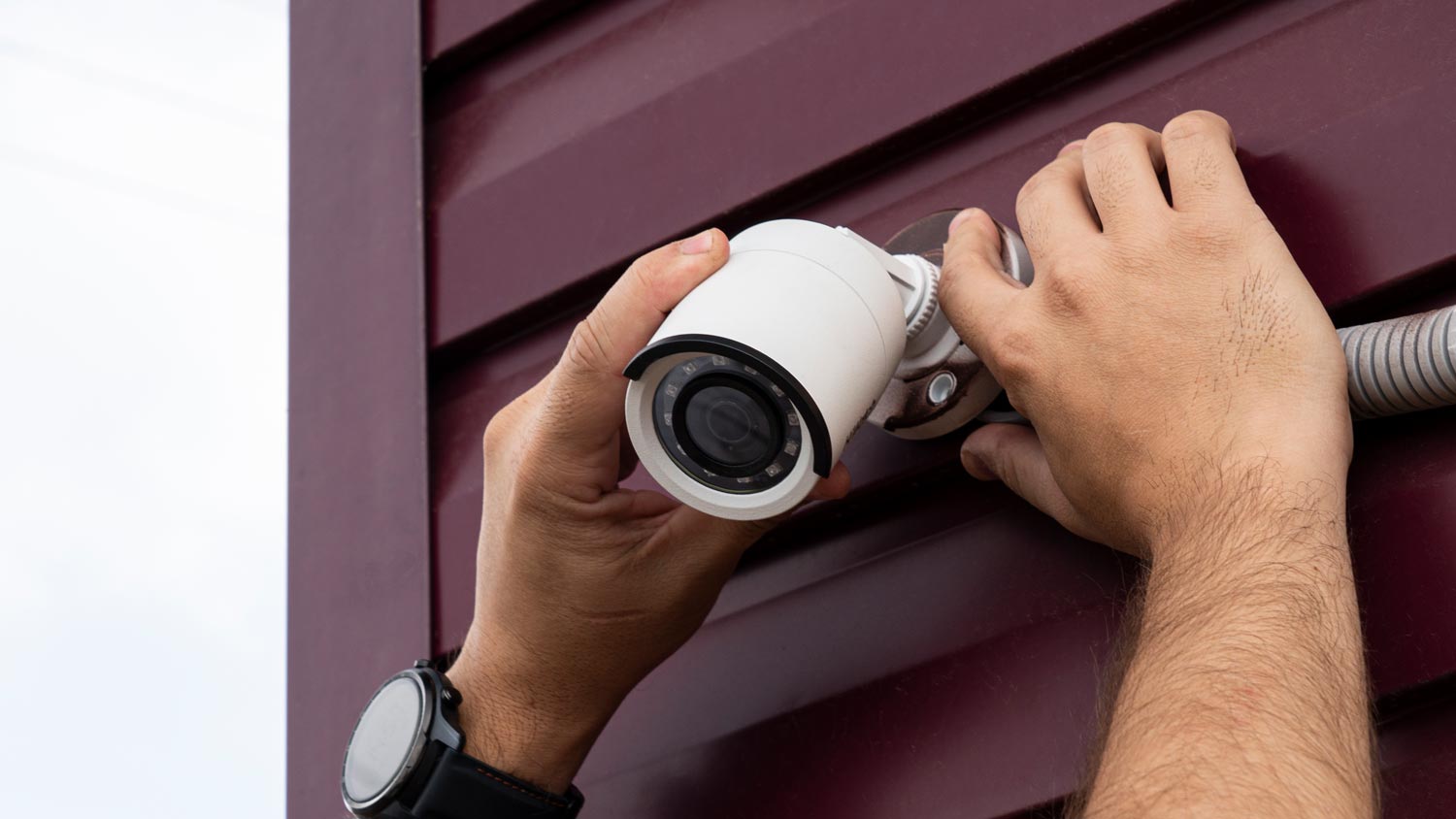5 Causes of False Alarms and How to Prevent Them
Security system false alarms may lead to warnings, small fines, or pricey penalties


False alarms happen, whether your home security system malfunctioned or your child decided to press a few buttons on the main panel for fun. But no matter the cause, what happens when you have a false alarm, and do police charge for it?
Depending on how many times you have a false alarm, you could see fines worth hundreds of dollars. Learn common causes of false alarms, potential fines, and prevention tips.
Do Police Charge for False Alarms?
Security systems help provide peace of mind—but what happens if your alarm goes off without proper cause? Maybe you entered the wrong code too many times or your cat triggered the alarm (again)—in both cases, you could pay a fine—or receive a warning.
Responding to a false alarm costs time and resources for police departments and municipalities, so many cities do have fees for false alarms.
Cost of False Alarms
The penalties for false alarms will depend on your city laws, but you can expect anywhere from $25 to over $400 for each false alarm. Some cities will respond to up to three false alarms for free, giving you time to address and fix the cause.
One occurrence: Some cities offer a warning on the first false alarm. Still, many cities charge $25 to $50 for the first false alarm because it becomes a public safety issue when police respond to false alarms when they could be responding to other legitimate calls.
Two occurrences: Again, costs range widely for each offense, depending on local laws. You might spend around $50 to $200 for a second false alarm.
Three or more occurrences: Prices quickly go up for three or more false alarms. They can be $300 or more each, with some cities charging over $1,000 per false alarm if you have several in one year.
Banned Security Systems
A pesky, malfunctioning alarm isn’t just an annoyance for your family. In some cases, police departments will ban your home and security system if you have several false alarms. That means the police will no longer respond to your alarm when it goes off—even if it turns out to be a real alarm.
Who Pays for False Alarms?
Just because your home security system glitches doesn’t always mean the company will be paying for false alarm penalties. Police departments will either charge the company or the homeowner for false alarms. If it's a user error, you’ll likely be liable for paying the fee.
If it’s a malfunction, you’ll want to talk with your home security company to cover the fee and fix the issue. They may or may not, depending on your contract, which is why it’s important to work with a registered, licensed, and highly rated security company.
5 Causes of False Alarms
Knowing the main sources for false alarms can help you avoid these costly occurrences as much as possible.
1. System Malfunction
Glitches can happen with even the best security systems. But if you are experiencing recurring false alarms and the company isn’t fixing the system, it might be time to reconsider the company you chose for this service.
2. Old Batteries
Wireless security systems rely on batteries for power. Batteries that are low on their juice can trigger a false alarm.
3. Loose Sensors
Security system sensors go on doors and windows, but they might trigger an alarm if they are loose.
4. Pets and Pests
Roaming pets or large pests can trigger your security system alarm. Many companies offer pet-friendly systems that are less likely to send a false alarm when Fido comes inside through the doggy door.
5. User Error
Many false alarms are simply from user error. You might have a new system and forgot your password, or perhaps your child decided to press several buttons on the panel. These accidents can, unfortunately, set off an alarm and could cost you.
7 Ways to Prevent False Alarms

False alarms are common, so you’re not alone if you’ve accidentally set yours off. There are several steps you can take to help avoid these false alarms and accompanying fees.
1. Hire a Professional to Install the Security System
There’s often an option to install a security system yourself or hire a licensed professional. Hire a professional to correctly and securely install the system. A professional will make sure the sensors are not loose, which can be a reason for false alarms.
2. Choose a Reputable Company
There are many home security companies you could work with, but make sure to check reviews and hire a top security company in your area. Companies that cut corners could mean you are stuck with a malfunctioning system and nearly non-existent customer service.
3. Install a Pet-Friendly System
Pets can trigger an alarm system, but many companies offer pet-friendly security systems with sensors that can detect a pet versus a serious threat.
4. Check Doors and Windows
Before you tuck in for the night or rush off to work, make sure you close and lock all windows and doors before setting your security system. Open or unlocked entry points could trigger a false alarm once you turn the system on.
5. Set a Familiarization Period
Many security companies offer a short familiarization period, during which any triggered alarms do not dispatch to the police department. This gives you time to select and learn the security pin and practice locking and unlocking it until you’re sure you know how to work it with minimal user errors.
Use this period to train anyone accessing your home regularly on how to use the system, and teach children to not play with the sensors or panel.
6. Keep Up With Maintenance
Dust, dirt, and debris can set off an alarm, as can old batteries. Check batteries every six months, and test the alarm monthly to make sure it is working properly.
Perform regular home security maintenance by dusting and cleaning the panel and sensors, and make sure sensors are secure and not loose after you clean them.
7. Opt for a System With Two-Way Communication
Some systems offer two-way communication, so if you set off an alarm by accident, you can quickly talk with the dispatcher and let them know it is a false alarm and not to send the police to help avoid any potential charges.





- What Causes False Alarms on Home Security Systems?
- Are Home Alarm Systems Worth It?
- How to Choose a Home Security System: Factors to Consider When Buying Home Security Equipment
- 3 Common Types of Window Alarm Sensors
- How to Do Home Security System Maintenance: Weekly, Monthly, and Yearly Checklist Items
- Do Security Signs Actually Deter Crime?
- How Much Does a Security System Affect Home Insurance?
- Do Alarm Systems Deter Burglars? Which Home Security Methods Actually Work
- Wired vs. Wireless Home Security Systems: Full Guide
- 35 Ways to Prepare Your House for Holiday Vacation [+ Free Checklists]










